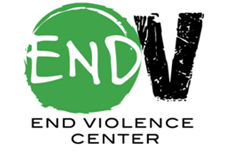End Violence Center Discusses Abusive Relationships

October 22, 2015
Physical abuse can be explained as any contact with or in the proximity of your body that is both unwanted and intentional. Some examples of physical abuse include pushing, choking, biting, smacking, hair pulling, and spitting which usually accompany some type of emotional abuse such as name calling. Physical abuse happens as a result of an individuals need for power and control in a relationship. These individuals use physical power to regain control when they feel challenged or tested by their partner.
Unfortunately in many cases, victims of physical abuse tend to change their behavior in hopes that their partner will refrain from violence. The belief that a change in behavior can prevent physical abuse is both dangerous and faulty in nature. Physical abuse is often times used as a means of intimidation, enforcement as well as suppression of the less dominate partner in the relationship. With that being said, intimate partner abuse has become one of the most common types of abuse experienced by individuals which unfortunately can be fatal in some cases. So why do people Stay? Love for a lot of people can be one of the most influential factors in the decision making process. Whether its love for the abusive partner, the children, or even a pet, some individuals really do hold on to hope that love will conquer all.
Intimate partner abuse can damage not only the partner on the receiving end, but also their family and friends who offer support in the situation. Abuse in general can be very damning to an individual’s self-esteem and feeling of self-worth. It is not uncommon for a victim of abuse to become dependent on their partner and take on a submissive role within the relationship. This loss of dependence often times manifests itself in behaviors such as asking for permission to do, say, or interact with certain people or even participating in uncomfortable situations (i.e. sexual scenarios) because it is safer than just saying “No!” Constant Symptoms of individuals who experience physical abuse are depression, anxiety, and a sense of helplessness. It is important to understand that regardless of the physical abuse the dependent partner will most likely defend the abusive partner. Even with visible bruises, the dependent partner will continuously deny and minimize the abusive situation. Minimization usually sounds like “He’s not like that, he was just angry” or “She just threw a fit, it was no big deal.” Whether you yourself or someone you know are in an abusive situation it is important to be educated and aware of options that are available.
For more information, contact the End Violence Center, located in the Carter Hall Wellness Center G94 by phone (724-938-5707) or at [email protected].




